PhD Student Profiles
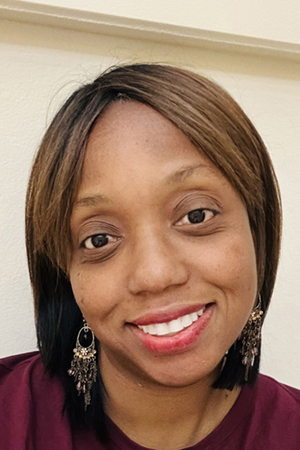
DANELLE BERNTEN
RESEARCH AREAS: History of Childhood, African American art, Arts of the African diaspora
ADVISOR: Dr. Robert Neuman
DISSERTATION TITLE: “Disfiguring Poverty in the Beggar Models of Sir Joshua Reynolds and John Opie during the Rise of British Evangelicalism (1730-1840)”
During the summer of 2023, Ms. Bernten was the PLACE and Museum Voices intern at the Princeton University Art Museum conducting research on the collection's drawings of Thornton Dial and publishing "Tigers' Eyes on Alabama Paper: Tailing Thornton Dial's Drawings in the Princeton University Art Museum." Her most recent academic publications include "Purvis Young's Galactic Geopolitical Maelstroms of Black Maternity," in Studies of American Culture (University of South Alabama) and "Coded Argent Automation on Eighteenth-Century Necks: The Representations of Enslaved Black Boys in French Portraiture," in the 41st volume of the art history graduate journal Athanor (Florida State University). She has presented at conferences at Auburn University, Mercer University, and the University of Washington-Seattle. Danelle was the 2025 Summer Graduate Research Fellow in Southern Art at The Johnson Collection in Spartanburg, SC.
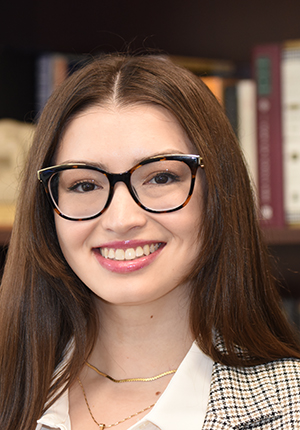
ISABEL BRADY
RESEARCH AREA: Medieval & Renaissance European art
ADVISOR: Dr. Erika Loic
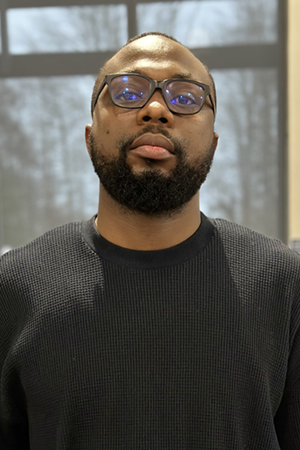
JOSEPH BRIGHT
RESEARCH AREA: African art and material culture
JC's master’s research focused on Mbari, a communal labor ritual involving the construction of decorative mud houses to honor deities. JC notably argued that Mbari represents a model of collaborative social organization that extends beyond Owerri culture, reflecting a larger history of communal spirit throughout Igboland. He also wrote that Mbari offers a more wholesome example of a democratic, participatory art model than some contemporary instances. This project is rooted in his scholarly identity that centers the cultural history of Igboland through indigenous art and human experience. This scope of engagement informs his doctoral research interest in the design thinking and cultural implications of contemporary Igbo masquerades.
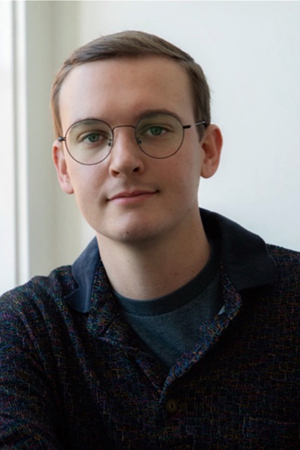
QUENTIN CLARK
RESEARCH AREA: Late Antique and Byzantine Art and Material Culture
ADVISOR: Dr. Lynn Jones
Quentin’s research interests lie in the art and material culture of the Byzantine Empire, with particular focus given to constructions and perceptions of identity between the fourth and ninth centuries. Using ecocritical approaches, his work largely concerns the ways in which certain animals, their materials, and their iconographies were adopted from ancient Greco-Roman pagan traditions and refashioned as symbols of authority (imperial, sacred, and otherwise) in various Late Antique and Byzantine ceremonial contexts.
Quentin’s most recent publication, “Symbolizing Reverence and Imperial Identity: The Elephant on the epi ton barbaron Seal,” was featured in volume 54 of Comitatus: A Journal of Medieval and Renaissance Studies (2023). He also presented his work, “Visualizing and Legitimizing Imperial Piety: Reconsidering the Early Byzantine Elephant,” at the 50th Annual Byzantine Studies Conference in New York City (2024). Quentin has received various grants and awards to support research and conference travel to both Türkiye and New York, including the Patricia Rose Fellowship, the I.N. Winbury Award, the Helen J. Beard Conference Travel Grant, and the Congress of Graduate Students Conference Presentation Support Grant.
Quentin currently serves as Editor of the Department of Art History’s peer-reviewed journal Athanor (volume 42) and as Communications Officer of the Graduate Student Committee for the Byzantine Studies Association of North America (BSANA). He also works as a teaching assistant in the Department of Art History.
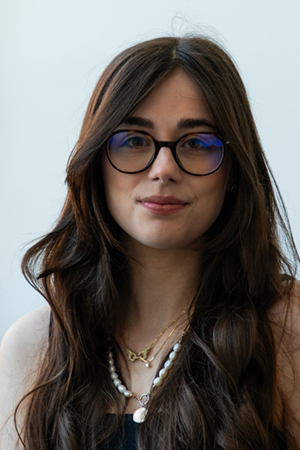
SERENA D'ALESSANDRO
RESEARCH AREA: Late Antique and Early Byzantine material culture
ADVISOR: Dr. Lynn Jones
Serena D’Alessandro is a doctoral student studying Late Antique and Early Byzantine material culture with Dr. Lynn Jones. Her research focuses on portable objects, particularly bodily adornment and textiles, from the fourth to eighth centuries. Using cross-cultural methodologies that prioritize regional artistic autonomy, she addresses the intra- and intercultural reception, transmission, and function of works created between Coptic Egypt (including modern-day Sudan) and Constantinople.
She has presented her research at the 49th and 50th Annual Byzantine Studies Conferences (2023 and 2024). Her most recent paper was titled “Pilgrimage and Martyrial Multivalency along the Lycian Coast: An Iconographical Case Study of Two Sixth-Century Syrian Bracelets.” Her research and conference travel to Vancouver, Washington D.C., New York, and Türkiye have been supported by various grants, including the Helen J. Beard Conference Travel Grant and the Congress of Graduate Students Conference Presentation Support Grant.
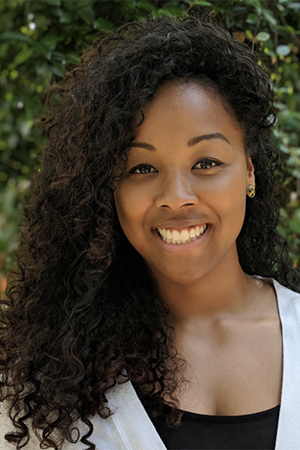
SONIA DIXON
RESEARCH AREA: Eastern Medieval Mediterranean Art
ADVISOR: Dr. Lynn ones
DISSERTATION TITLE: “Iconography of Transition: The Chi-rho during the Late Antique Period”
Sonia Dixon is a PhD candidate studying visual culture and identity in Late Antiquity (3rd – 6th century) in the eastern Mediterranean. Her research interests include the transmission, appropriation, and adaptation of objects and iconographies across perceived cultural, ethnic, and religious “boundaries.” Her dissertation delves into the reception of the chi-Rho in Late Antiquity.
Sonia received her BA in Art History in 2012 from Middle Tennessee State University and completed her MA in Museum and Cultural Heritage Studies at FSU in 2016. She presented at the 20th New College Conference on Medieval and Renaissance Studies at New College of Florida (2016), the 3rd Annual Symposium on Diversity & Inclusion in Research & Teaching Organization (DIRECTO) (2020), the 37th Annual Art History Graduate Symposium at FSU (2021), and the 24th International Congress of Byzantine Studies: Byzantium – Bridge Between Worlds in Venice (2022).
Sonia was the first cohort of the William Sanders Scarborough Fellow with the American School of Classics at Athens. She also serves as a Captain in the U.S. Army Reserve as a Heritage and Preservation Officer and a Senior Analyst with Cultural Heritage Monitoring Lab. Her publications include “Reexamining Syncretism in Late Antique Iconography of a Vault Mosaic,” in the 38th volume of the art history journal Athanor and “The Question of Authenticity: Two Ethiopian Icons,” in Peregrinations: Journal of Medieval Art & Architecture VIII/1.
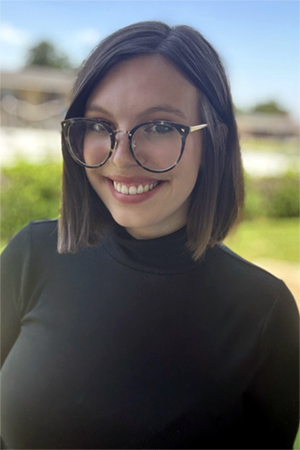
MADISON GILMORE-DUFFEY
RESEARCH AREA: Late Antique and Early Byzantine material culture
ADVISOR: Dr. Lynn Jones
DISSERTATION TITLE: “The Classical Past in the Art of Late Antique Byzantium”
Madison Gilmore-Duffey is a doctoral student working with Dr. Lynn Jones. She studies Late Antique and Early Byzantine material culture and the construction and presentation of identity. Her dissertation, “The Classical Past in the Art of Late Antique Byzantium,” focuses on the ways in which objects from the classical past were translated, staged, and modified to reflect Late Antique cultural values including legitimacy, power, and heritage.
Her research has been featured in several publications, including a forthcoming article, “Importing a Past: Alexander, Constantine, and The Serpent Column” (Diogenes), “The Iconography and Roles of an Ascetic Monk: A Painting of Abba Samuʾel of Waldəbba,” and catalog entries for “Ethiopian Art in the David P. Harris Collection, Department of Art History, Kenyon College: Cultural Heritage, Identity, and the Persistence of Form” (Peregrinations: Journal of Medieval Art & Architecture VIII/1). She presented her research at the 24th International Congress of Byzantine Studies (2022) in Venice.
Madison has served on the first Graduate Student Committee in the Byzantine Studies Association of North America (BSANA) (2020-2022), the Department of Art History’s first Graduate Student Symposium Committee (2020-2021), and is co-editor of the Department of Art History’s peer-reviewed journal, Athanor vol. 40 (forthcoming).
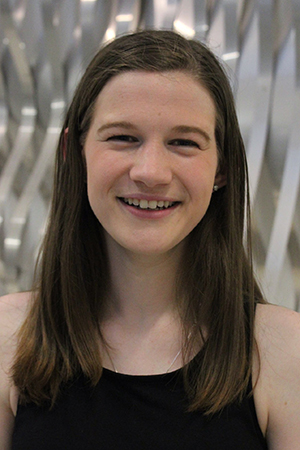
HAYLEE GLASEL
RESEARCH AREA: Contemporary Indigenous Art and Media
ADVISOR: Dr. Kristin Dowell
DISSERTATION TITLE: “Art and Activism: Sámi Responses to Contemporary Environmental Violence”
Haylee Glasel is a doctoral candidate in the Department of Art History at Florida State University. She is an art historian of modern and global contemporary art with a focus on Indigenous art and media in Sápmi (Norway/Sweden/Finland/Russia). Her dissertation addresses the connections between art, the environment, government policy, and Indigenous rights by examining land-based contemporary performance, sculpture, film, and photography. She engages materiality, relationality, place/site, visual sovereignty, self-determination, and Indigenous science.
Haylee received a BA in Art History (2017), a BA in Classics with a minor in Anthropology (2017), and an MA in Art History (2019) from Florida State University. Haylee has been awarded the Mason Dissertation Research Award, Helen J. Beard Conference Travel Grants, College of Fine Arts Travel Grant, and Congress of Graduate Students Conference Presentation Support Grants which have supported research and conference travel to Finland, Norway, Canada, and Italy.
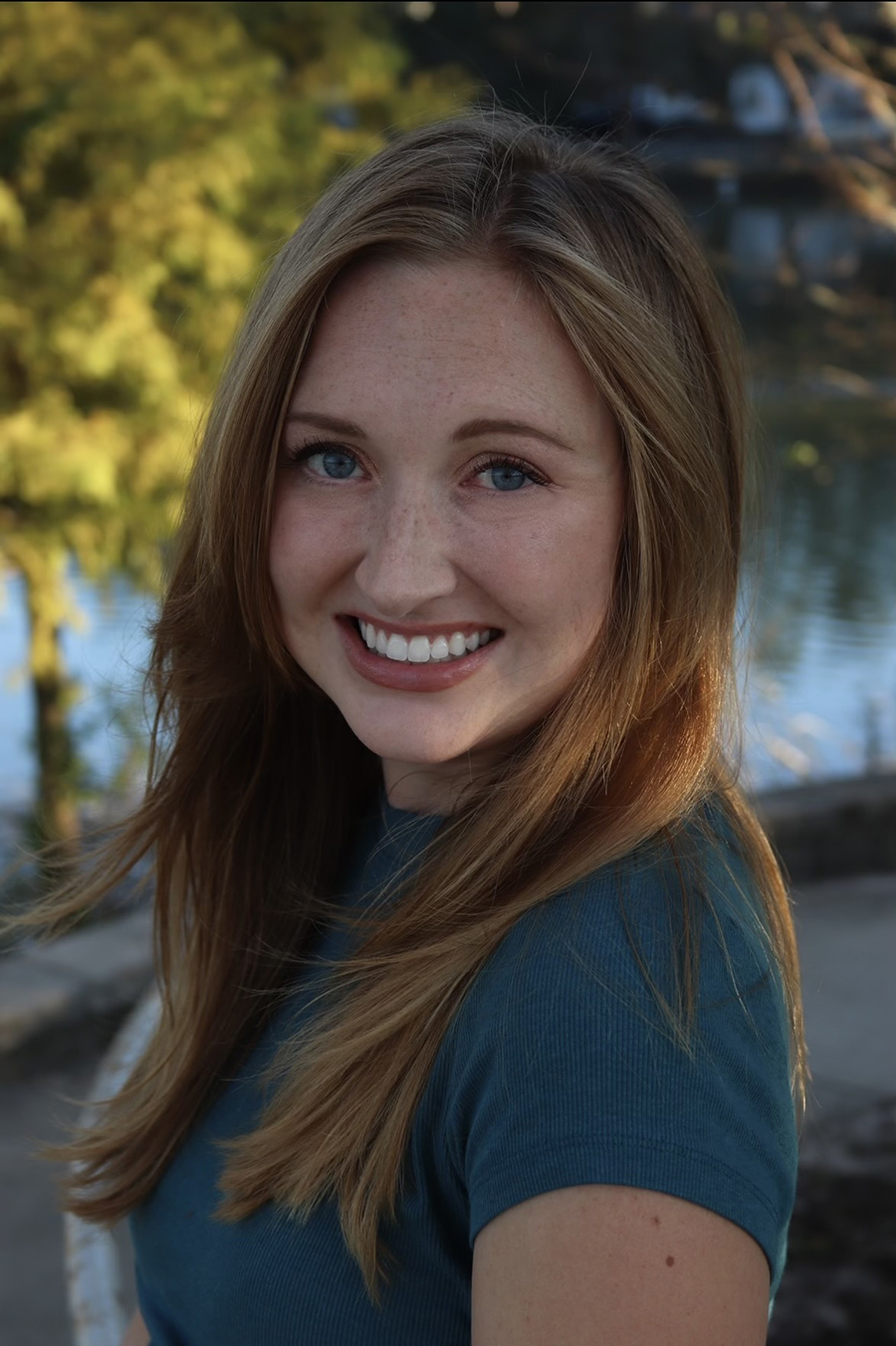
EMMALEIGH HUSTON
RESEARCH AREA: Art and Visual Culture of the Medieval Mediterranean
ADVISOR: Dr. Erika Loic
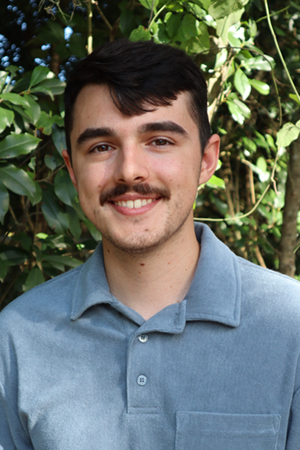
HUDSON KAUFFMAN
RESEARCH AREA: Late Antique and medieval art
ADVISOR: Dr. Erika Loic
Hudson Kauffman is a first-year PhD student specializing in Late Antique and medieval art. His research explores ambiguous and multipurpose imagery in both public and private spaces. His MA thesis, Villains on Vellum, analyzed the depiction of racially composite “others” in the 14th-century Luttrell Psalter. Hudson has also collaborated with Dr. Nancy de Grummond on Etruscan art, presenting his work on the iconography of bronze vessels from Cetamura del Chianti at the Cetamura 50th Anniversary symposium. He is a recent recipient of the Kenneth Reckford Fellowship for archaeological research in Italy.
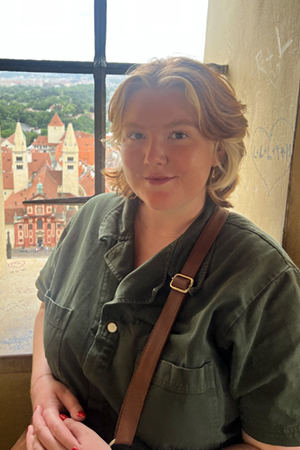
SAHARA LYON-MUNDY
RESEARCH AREA: Contemporary African diaspora
Sahara Lyon-Mundy joins the FSU Art History PhD Program in the fall of 2025 after completing her Bachelor of Arts (2020) and Master of Arts (2022) in the History and Criticism of Art at FSU. She has been accepted to and presented at regional and national conferences including SECAC (2021) and CAA (2023), discussing the work of U.S.-American portrait artist Barkley L. Hendricks and his work’s visual connection to West African studio photography. Her main research interests center global contemporary art, particularly the intersection between portraiture, the body, and power in contemporary art of the African diaspora.
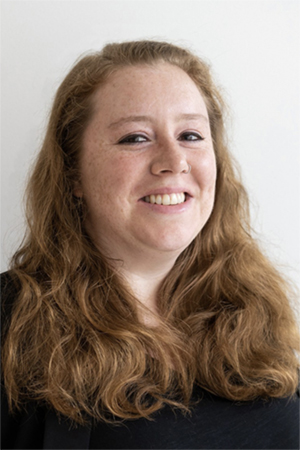
SARAH MATHIESEN
RESEARCH AREA: Byzantine art
ADVISOR: Dr. Lynn Jones
DISSERTATION TITLE: “Yılanlı Kilise: Meaning and Identity in a Byzantine Rock-Cut Church”
Doctoral candidate Sarah Mathiesen specializes in the art of Byzantium, with a research focus on constructions of identity and meaning. Her dissertation examines the monumental decorative program of Yılanlı Kilise, a rock-cut church located in the Ihlara Valley of Cappadocia, Turkey, and seeks to recontextualize Yılanlı as part of a rich contact zone between multiple cultures of the eastern medieval world, from Byzantium to the Islamic Caliphates, Georgia, and Armenia.
Sarah graduated with her MA from Tulane University in 2015, where she completed a thesis examining a 14th-century Byzantine manuscript of the Alexander Romance. At FSU, Sarah is a Legacy Fellow in Art History and a member of the Graduate Fellows Society. She currently serves as Co-Director of the Medieval Studies Workshop and previously as a Program for Instructional Excellence (PIE) Teaching Associate. In 2022, she was awarded one of six university-wide Outstanding Teaching Assistant Awards (OTAA). Outside of FSU, Sarah serves as a member of the Student Committee of the International Center of Medieval Art (ICMA) and co-chairs the ICMA’s new Oral History Project.
Sarah’s work has been supported by several institutions, including the Medieval Academy of America’s Robert and Janet Lumiansky Dissertation Grant and the ICMA’s Student Travel Grant. A winner of FSU Art History’s I.N. Winbury Essay Award, she has presented papers nationally and internationally, including at the International Congress of Byzantine Studies, the North American Byzantine Studies Conference, the International Congress of Medieval Studies, and the Middle East Studies Association annual meeting. Her publications include “Effective Objects: Ethiopian Pectorals and the Body” in Peregrinations: Journal of Medieval Art and Architecture and a review of Robert Ousterhout’s Eastern Medieval Architecture.
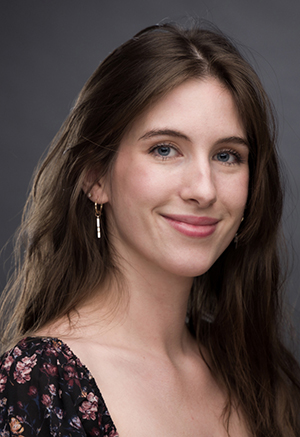
LYDIA MCCOLLUM
RESEARCH AREA: Medieval and early modern European art
ADVISOR: Dr. Erika Loic
Lydia McCollum joins the FSU Art History doctoral program in the fall of 2024. She earned a Master of Arts in Medieval Art History from The University of Alabama in 2021, following her Bachelor of Arts in Art History and Medieval and Early Modern European Studies in 2020. There, her research focused on gendered images of the vices in medieval French sculpture and manuscripts. Lydia has presented papers at Medieval and Early Modern Studies Festival (MEMSfest) at the University of Kent (2023), SECAC (2023), and Medieval and Renaissance Forum: The Medieval Monstrous at Keene State College (2024). Her research focuses on the reception of gendered images of moral exemplum in medieval art, examining the influence of classical and folkloric figures on perceptions of gender and history. She is particularly interested in the reuse and reception of antique and early medieval sculptural image types in later medieval illuminations, as well as in tracing the origins of medieval image types.
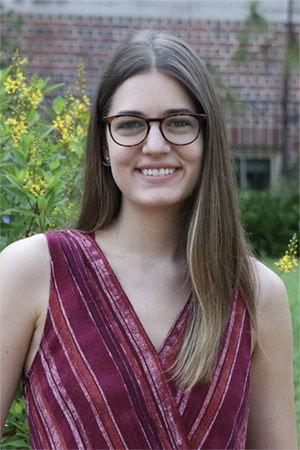
CAITLIN MIMS
RESEARCH AREA: Medieval Art and Material Culture of the Mediterranean
ADVISOR: Dr. Lynn Jones
DISSERTATION TITLE: “Hystera Amulets: Magic and Female Healing in the Middle Byzantine Period”
Caitlin Mims is a doctoral candidate working with Lynn Jones on the art and material cultural of medieval Byzantium. Caitlin’s research is focused on the boundary between magic and religion in the Middle Byzantine period (843-1204). Her dissertation examines a group of amulets with the hystera, or womb, motif and questions what distinguishes magic from medicine or divine intervention.
Caitlin graduated with her MA in Art History from Florida State University in 2019 and her BA in History from the University of Tampa in 2016. As a PhD student and Patricia Rose Fellow at Florida State University, she has received various fellowships and grants including the Dr. Christopher M.S. Johns Art History Award for International Study, a Library of Congress Junior fellowship, an International Council of Medieval Art student research travel grant, and College of Fine Arts Travel Grants.
In 2023, Caitlin was selected for a Fulbright Greece-Turkey Joint Research Award. She will conduct dissertation research in both countries over a 9-month period beginning in September 2023.
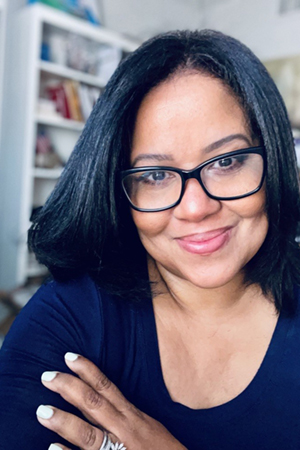
ILEANA OLMOS
RESEARCH AREA: Visual Cultures of the Americas/ Archaeological and architectural conservation/ African Diasporas in Panamá
ADVISOR: Dr. Paul Niell
DISSERTATION TITLE: “African Diasporas in Panamá and the Ritual of the Congo Performance at Nombre de Dios”
Ileana Olmos is a doctoral candidate researching the African Diasporas, Black identity, and the game and ritual of the Congo Afro-descendants of the historical town of Nombre de Dios in Panamá. Ileana holds a Master of Science in Conservation from University College London (UCL) Qatar, a Master of Historic Preservation from the University of Florida, and a Bachelor of Visual Arts from the University of North Florida. Her professional experience includes conservation consulting with the National Park Services in the Virgin Islands, medieval structures restoration training with Willowbank School of Restoration Arts in Italy, and built heritage conservation training with the Israel Antiquities Authority in Israel.
Ileana has also collaborated with the International Center for the Study of the Preservation and Restoration of Cultural Property (ICCROM) in Rome, Italy, assisting in preparing and organizing the 2013 Forum on Conservation Sciences. She served as an advisory body to ICCROM-ATHAR at the 38th Session of the UNESCO World Heritage Committee in Doha, Qatar. Ileana has participated in excavations in Qatar, Turkmenistan, and Israel and has carried out archaeological conservation of pre-Columbian artifacts in Panama. Ileana also served as a conservator for the Florida State Laboratory of the Bureau of Archaeological Research and, most recently, at the University of Arizona’s Tree-Ring Research Laboratory in 2020.
She recently received a Helen J. Beard Conference Travel Grant and the Congress of Graduate Students Conference Presentation Support Grant to present a portion of her current doctoral research at the IV International Conference on Afro-Central American Studies at the Villa de Los Santos, Panamá, in May 2023, titled “El Palenque: Escape, Refuge, and Persistence.” Ileana is the newly appointed curator at the John G. Riley Center and Museum, where she oversees exhibitions, educational programs, and community outreach.
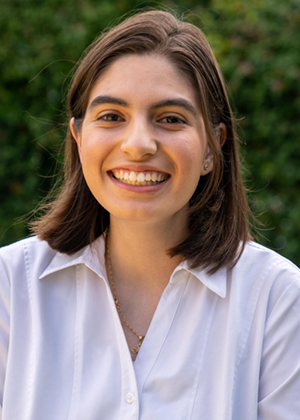
MARIA RODICIO
RESEARCH AREA: Renaissance and Baroque European Art
Maria Rodicio joined the FSU Art History program in the Fall of 2025. Prior to joining FSU, she graduated with her Master of Arts in Art History from the University of South Florida. In 2023, she received her BA in Art History from Florida International University with a minor in Art and a Certificate in Academic Portraiture and Figurative Art. Her research focuses on the theological discourse on images and art during the periods of the Protestant Reformation and Catholic Counter-Reformation, with a specific emphasis on issues of gender, desire, and sin. Her masters’ qualifying paper, centering on Calvinist moral anxiety toward painting in the seventeenth-century Dutch Republic, will be presented at the Italian Association of Shakespearean and Early Modern Studies’ sixteenth conference: “Forms and Discourses of Spirituality and Materialism” in September 2025.
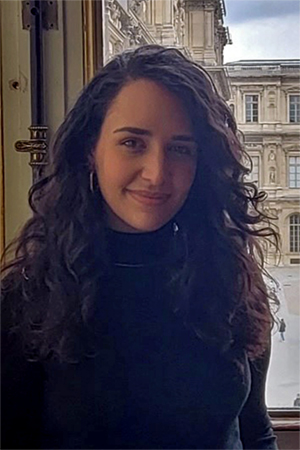
SARA RODRIGUEZ
RESEARCH AREA: Nineteenth and mid-twentieth-century Caribbean art and architecture
ADVISOR: Dr. Paul Niell
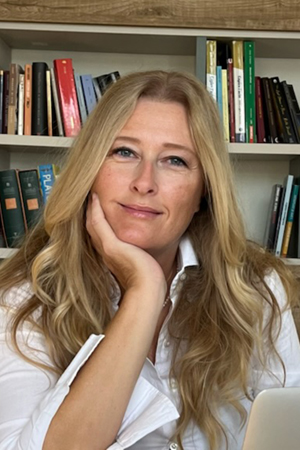
LAURA SAPONARA
RESEARCH AREA: Renaissance and Baroque art
Laura Saponara joins the FSU Art History doctoral program in fall 2025. She holds a Master’s degree in Cultural Heritage from the University of Naples “Suor Orsola Benincasa,” where she completed a thesis on Erwin Panofsky and Roman funerary sculpture, and a specialization in Art History Teaching from the University of Venice “Cà Foscari.”
Her professional background includes curatorial and organizational work with the Curia of Venice and gallery management at Opera Gallery Venezia, where she oversaw international exhibitions and developed experience in art sales. For over a decade, Laura has been dedicated to teaching Art History in Italian high schools, contributing to the education and appreciation of art among students.
Laura’s research lies at the intersection of art history, archaeology, and cultural heritage management. She is particularly interested in the reception and reinterpretation of ancient art in the Renaissance and Baroque periods, focusing on the culture of antiquarianism in sixteenth and seventeenth-century Naples. Her work explores how classical traditions were understood, visualized, and reframed across time, especially in a region as historically layered as Naples and its surroundings, where much remains to be uncovered and newly interpreted.
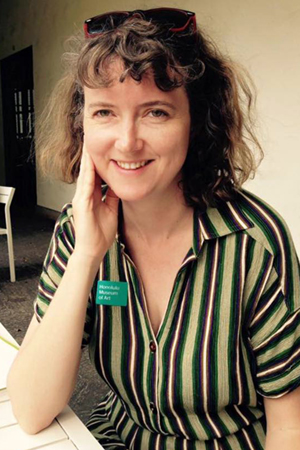
SHEILA SCOVILLE
RESEARCH AREA: Visual Cultures of the Americas; Ancient, Colonial, and Contemporary Mexico
ADVISORS: Dr. Michael Carrasco and Dr. Paul Niell
DISSERTATION TITLE: “Visualizing Human-Agave Symbiosis in Colonial Mexican Manuscripts”
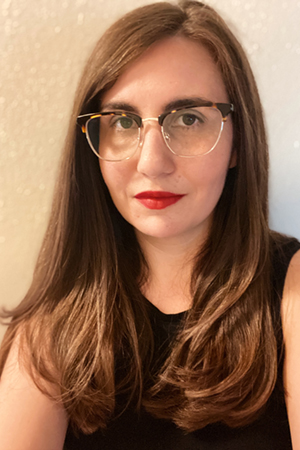
LEAH SHERMAN
RESEARCH AREA: Museum History
ADVISOR: Dr. Adam Jolles
DISSERTATION TITLE: “The ‘Museum Problem’ and the Fantasy of the Global 1950s”
Leah Sherman’s research interests are in 20th-century museum history. Her dissertation concerns the rise of internationalist museographic and cultural heritage practices, concurrent with the rise of UNESCO and ICOM in the years following World War II. In 2019, she was recognized by her peers as the doctoral student winner of the I. N. Winbury Award for her paper “Examining Internationalism in Postwar Italy: A New Assessment of Lucio Fontana’s Struttura al neon and the Argentinian Avant-Garde.” From the FSU Department of Art History, Leah has received the Helen J. Beard Conference Travel Grant to give multiple international conference presentations, including both her research on postwar Poland’s Museobus mobile museum program at the virtual AMPS Prague-Heritages conference in June 2023 and a portion of her dissertation on Genoa’s Palazzo Bianco museum at AMPS Barcelona in July 2024 as well. She is also a recipient of the Penelope E. Mason Dissertation Research Award to conduct dissertation research in several archives and museums across France and Italy. Besides pursuing her doctoral degree she is also library faculty, holding the rank of University Librarian at FSU and serving as the Visual & Performing Arts Librarian. In this capacity she acts as subject liaison to all departments within the College of Fine Arts including the FSU Museum of Fine Arts and Ringling Museum, and she remains an active member of several related professional organizations such as ARLIS (Art Libraries Society of North America), ACRL (Association of College & Research Libraries), and CAA (College Art Association.) Most recently she served at the President of the ARLIS/Southeast Chapter in 2020.
Leah graduated with Honors and Phi Beta Kappa from Florida State University with a BA in Art History and minors in International Affairs and Italian Studies in 2010. In 2012 she completed her MA in Art History at FSU, which culminated in her graduate thesis, “Institution versus Individuality: Rethinking Unity in Early Italian Futurism.” As a master’s student she served a term as President of the FSU Art History Association. In 2016, Leah completed her second master’s degree at Florida State in Library and Information Science.
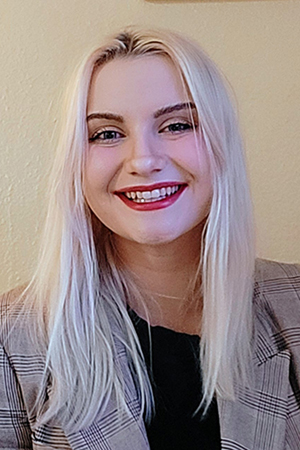
RAIGEN SUMRALL
RESEARCH AREA: Early modern European art
ADVISOR: Dr. Stephanie Leitch
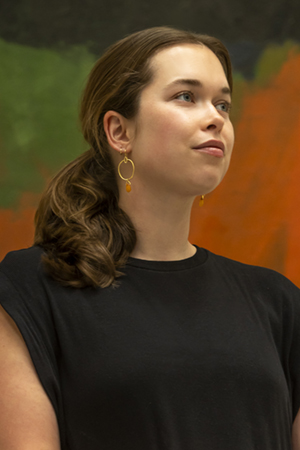
OLIVIA TURNER
RESEARCH AREA: Early Modern Spain
Olivia Turner joined the PhD program in Art History at Florida State University in the fall of 2025. She earned her Master of Arts in Art History from the University of Alabama, where her thesis focused on the women artists of seventeenth-century Seville. Following the completion of her M.A., Olivia spent four years at the Meadows Museum in Dallas, TX—one of the leading institutions dedicated to the promotion of Spanish art and culture outside of Spain. As Curatorial Assistant, she curated exhibitions, contributed to catalogues and institutional publications, and received comprehensive training in curatorial and museum practices. She also gave numerous lectures and gallery talks to a wide range of audiences at the Meadows Museum.
During her time in Dallas, Olivia completed a graduate certificate in Art Museum Education through the University of North Texas. To complement this training, she has served as the Free First Saturday Education Intern at the Nasher Sculpture Center since October 2023. Olivia has presented her research at SECAC (2022) and MAHS (2025). Her scholarly interests center on the life and career of Luisa Roldán, Spain’s first professional female sculptor, and the broader network of women artists working in Early Modern Spain and Latin America.
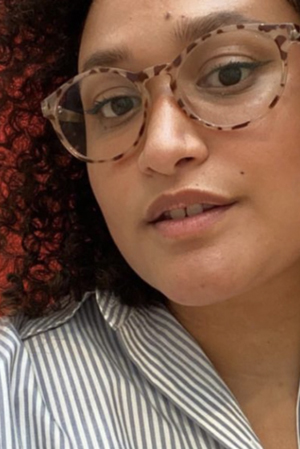
ESTEFANIA VALLEJO SANTIAGO
RESEARCH AREA: Modern and contemporary Puerto Rican art
ADVISORS: Dr. Mora Beauchamp-Byrd, Dr. Tenley Bick
DISSERTATION TITLE: “Puerto Rican Muralism: A Critical History of Place, Communal Identity, and Politics“
Estefanía Vallejo Santiago is a Puerto Rican art historian and PhD candidate in the Department of Art History at Florida State University. Her research focuses on modern and contemporary Puerto Rican art, with particular attention to muralism, site-specific practices, and the politics of space. Grounded in decolonial theory, Caribbean feminist thought, and critical race methodologies, her work examines how visual culture becomes a tool for place-making, resistance, and the assertion of communal identities in both Puerto Rico and its diaspora.
Her dissertation, Puerto Rican Muralism: A Critical History of Place, Communal Identity, and Politics, traces how murals have operated as forms of visual resistance and spatial intervention from the 1940s to the present. Through archival research, site analysis, and oral histories, she explores how artists use public walls as platforms to contest colonial structures, assert Afro-Caribbean presence, and foster collective memory. The project also considers how muralism intersects with broader debates around urban space, migration, and cultural sovereignty in Puerto Rican communities across the archipelago and New York City.
Beyond her dissertation, Vallejo Santiago’s research extends to the study of Creole architecture, print culture, and contemporary art practices that engage questions of Blackness, belonging, and spatial memory. She is also an active co-founder of the Ancestral Landscapes Lab (ALL), a collaborative project that documents and maps Afro-Puerto Rican histories of place and storytelling. Through her academic work, teaching, and community engagement, she is committed to fostering more inclusive, interdisciplinary approaches to art history that center the experiences and cultural production of marginalized communities.
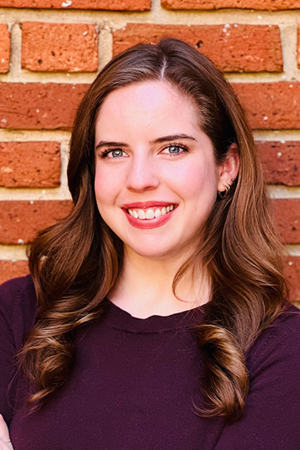
EMILY WHITE
RESEARCH AREA: Early Modern European Art
ADVISOR: Dr. Stephanie Leitch
DISSERTATION TITLE: “Visual Surgery: Printing in Early Modern Europe”
Emily White is a doctoral candidate specializing in European art (c. 1400—1600). Working under the supervision of Dr. Stephanie Leitch, her research investigates the visual history of medical graphics and the dissemination of vernacular knowledge through prints of surgery.
Emily graduated with a Master of Arts degree in Art History from Florida State University in 2020, focusing on early modernity and German printmaking. During her graduate studies, Emily has presented at the Saint Louis University Medieval and Renaissance Studies Symposium, the Southeastern College Art Conference (SECAC) and the Newberry Center for Renaissance Studies Graduate Student Conference supported by a Newberry Renaissance Consortium Grant. Her review of Monique Kornell’s Flesh and Bones: The Art of Anatomy (2022) was published in Comitatus (2023).
She completed a summer research fellowship at the University of Alabama’s Reynolds-Finley historical medical library (2022) and has been awarded a Kress Language Schools Fellowship to study German at Middlebury Language Schools (2023). In the summer of 2025, Emily was granted a research fellowship at Yale University’s Beinecke Rare Book and Manuscript Library.
